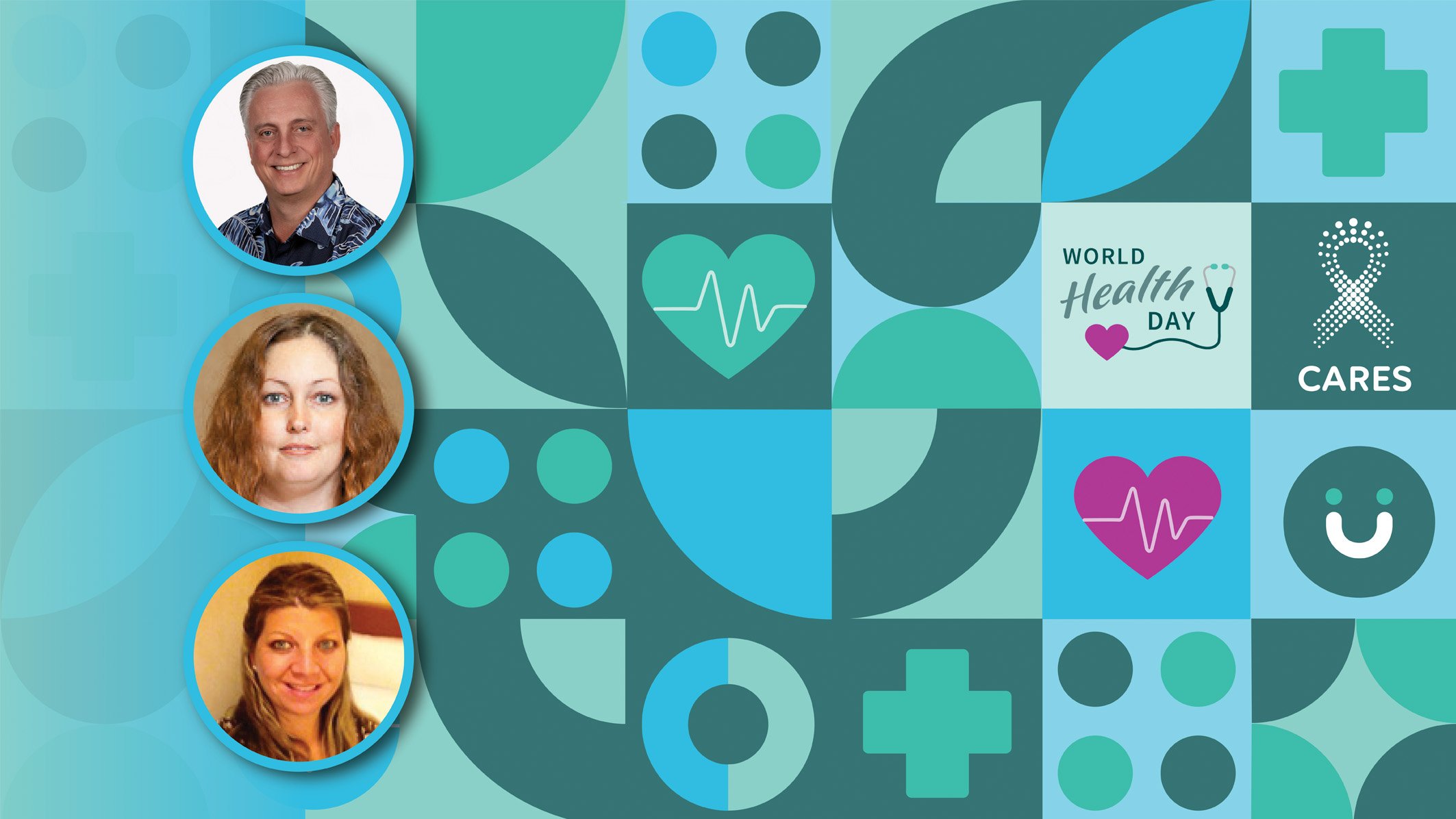October 11 is National Coming Out Day in the U.S., first observed on the anniversary of the National March on Washington for Lesbian and Gay Rights and as a reminder that one of our most basic tools is the power of coming out. Our stories can be powerful for each other. When people know someone who is LGBTQIA+, they are far more likely to support equality. Stories can change hearts and minds.
In honor of the day, UKG U Krewer Don Lariviere shares his story in his own words.
There’s a joke by the fabulous lesbian comedian Kate Clinton that says there’s a distinct order to the way in which your queerness is detected. First, by everyone else. Then, by you. And finally, by your parents.
I grew up in the Irish-Catholic neighborhood of Hungry Hill in Springfield, Massachusetts. It was a wonderful, middle-class neighborhood—nice people, family nearby, and proximity to the only proper school to which to send your religious children. Or, in my case, children whom you would like to be religious.
I was smart, focused, well mannered, a bit pudgy (husky, said the label on my 1970s slacks). I wasn’t attractive or cool in any way, I wasn’t invited anywhere by anyone. But I could organize a closet, bake a chocolate pie, match my belt to my socks, and crush a spelling bee.
I was also head-over-heels for the busboy at the Quarterdeck Diner, a nearby family favorite. He was always clearing tables when we went, and he was dreamy. “That boy is very cute,” I distinctly remember telling my mother. She died at 33, when I was 13. This was not long prior, so I still remember her scolding reply, as my dad glared on: “Boys do not think other boys are cute!” End of discussion.
If I’m following the joke, everyone else did already have clues. I wasn’t a “sporto.” I didn’t like-like girls. I wasn’t a stereotypical (for that time) rugged, tough, athletic boy. The perception, unsaid, was difference. Girly. Gay.
And as it did for so many of us, it began. For me it was a good eight years of taunting, teasing, shoving, book-kicking, name-calling, humiliation … your basic bullying.
I consider myself one of the lucky ones. Bullied, taunted, teased…yes. But rejected by family, cast aside from friends, a victim of physical violence, or worse…no.
And the kicker is that it wasn’t just the students. More than one teacher, members of the Sisters of St. Joseph or the Roman Catholic priesthood, called me a fag in class. More than one. End of discussion.
I didn’t come out publicly for another 13 years. By 26 I was quietly dating someone but not out at work or to my family. My stepmom called with her annual Thanksgiving invitation. I squirmed, stammered, was noncommittal … all uncharacteristic of me, and she knew something was up.
And I chose that moment.
“Well,” I said, “I’m gay.” And all these years later I still remember her fabulous and unexpectedly underwhelming response: “So?”
It was so small that in her head she must have been thinking, “What, the gays can’t have turkey?” My dad overheard what was happening and got on the phone to tell me that I would always be his son and he loved me. Also unexpected from my very heterosexual, former Marine, not-so-nice-to-people-who-are-different, gun-toting dad.
They invited us both for Thanksgiving. Of course, we ate turkey. I even made the gravy that year—from scratch with wine-poached wild mushrooms and crispy sage. I mean we’re not savages.
And so, I consider myself one of the lucky ones. Bullied, taunted, teased … yes. But rejected by family, cast aside from friends, a victim of physical violence, or worse … no. I am grateful for my experience—the good and the bad. I’m grateful for it all because it’s shaped who I am today, and I wouldn’t change it.
Now, at 54, I’m happily married to Matt, my husband of 14 years and partner for 22. My stepmom is my biggest ally. My dad passed last year.
Matt and I were married in Canada while living there for my job for a few years; Canada had already legalized same-sex marriage. Work moved us to The Netherlands for another few years, and same-sex marriage is legal there as well. Then again, they have legalized drugs and prostitution, so you know they just threw their hands up and said, “Oh what the hell, just let them do it.”
The religious thing never really took, though as a kid there was a certain calmness about our time in church, where all were quiet and respectful, and no one was called queer. My high school was leveled by a tornado a decade ago. It was summer vacation, so the building was vacant, and no one was hurt. A fitting end, perhaps, to the turmoil that went on in that building for many kids, not just me, perpetrated by kids and adults alike.
The school was reborn seven years later with a new identity and in a different, new from-the-ground-up façade. I guess you could say the same about me, coming out when I did about seven years after graduating, a proud gay man comfortable in a new skin.
Learn more about UKG’s Employee Resource Programs (ERGs).
Find out how UKG is building an inclusive environment for all people.
Check out this guide for ideas on how to create a more diverse, inclusive, and equitable organization at work.



